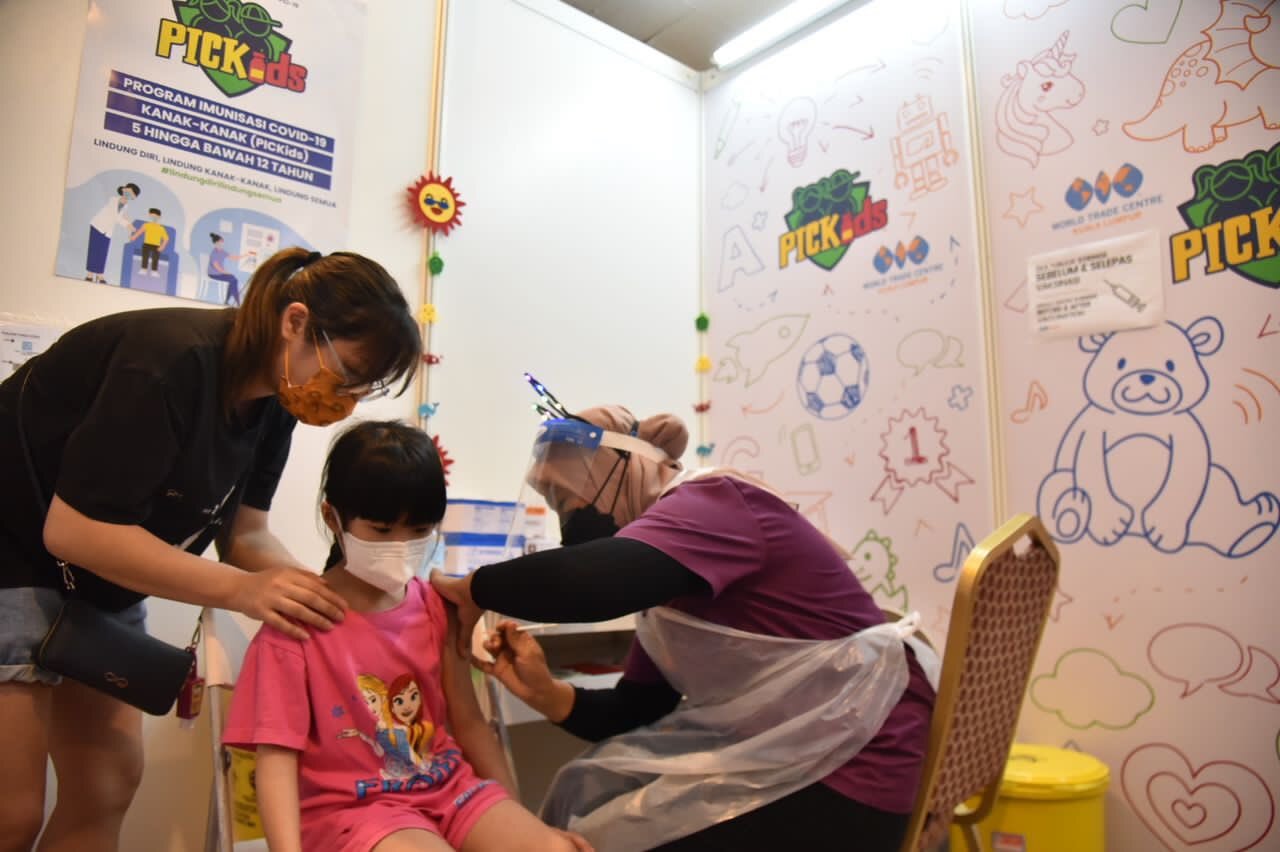KUALA LUMPUR, Sept 7 – The Ministry of Health (MOH) today recommended Covid-19 inoculation for children aged six months to five years with underlying health issues or who have weak immune systems.
Health Minister Khairy Jamaluddin said MOH has begun the process of procuring Covid-19 vaccines specially formulated for this group of children.
“The Technical Working Group doesn’t recommend it for all, only for those with comorbidities or weak immune systems,” Khairy told reporters here today, after launching a conference jointly organised by the International Generic and Biosimilar Medicines Association and the Malaysian Organisation of Pharmaceutical Industries.
The health minister did not state which vaccine the government intends to procure for under-five children.
In the United States, the Centers for Disease Control and Prevention (CDC) recommends Covid-19 vaccination for all children six months through five years of age, not just the immunocompromised or those with comorbidities. Coronavirus vaccines available for these children in America are mRNA vaccines – either Pfizer-BioNTech or Moderna.
The uptake of Covid-19 vaccination among aged five to 11 years in Malaysia, however, has been relatively low compared to the inoculation rate among adults, 98 per cent of whom have been double vaccinated. About 69 per cent of adults aged 18 and older have received their third jab.
According to the CovidNow site, half of children aged five to 11 years have received at least one Covid-19 vaccine dose, including 43 per cent who are fully vaccinated with two doses.
Khairy said MOH is still considering whether to purchase vaccines targeting the Omicron variant.
“We have not yet decided whether we’ll offer this vaccine to everyone or only to high-risk individuals.”
MOH today also recommended giving first Covid booster jabs to children aged five to 12 years with comorbidities or weak immune systems.
“A first booster dose can increase the vaccine’s effectiveness against severe disease caused by the Omicron variant. It can be given six to nine months after the last dose received,” Khairy said in a statement.
Pregnant women and nursing mothers who are at risk of severe Covid-19 disease are eligible for second booster shots at any time throughout pregnancy.
“Current data shows that the mRNA vaccine is effective in reducing the risk of severe Covid-19 infection during pregnancy,” Khairy said.
He added that MOH’s recommendation of second boosters for pregnant women is in line with the World Health Organization’s (WHO) recommendation.
The final Covid-19 vaccine recommendation by MOH’s TWG made last September 3 is in support of heterologous vaccination for the second booster jab, or fourth dose, for high-risk individuals.
Previously, MOH only approved the use of Pfizer for the second vaccine dose for individuals aged 50 and older, immunocompromised individuals aged 12 and older, adults aged 18 and older with comorbidities or at risk of severe disease, pregnant women and nursing mothers, and health care workers.
Now, the TWG recommends heterologous, or mix-and-match vaccination with an mRNA or viral vector vaccine, for the second booster for those at high risk of getting seriously ill from Covid-19.
Those who received inactivated vaccines for the initial doses can take a vector or mRNA vaccine for the following dose.
Those initially inoculated with a vector vaccine can opt for an mRNA booster, while those who took mRNA shots for their first doses can take a vector vaccine for subsequent jabs.








